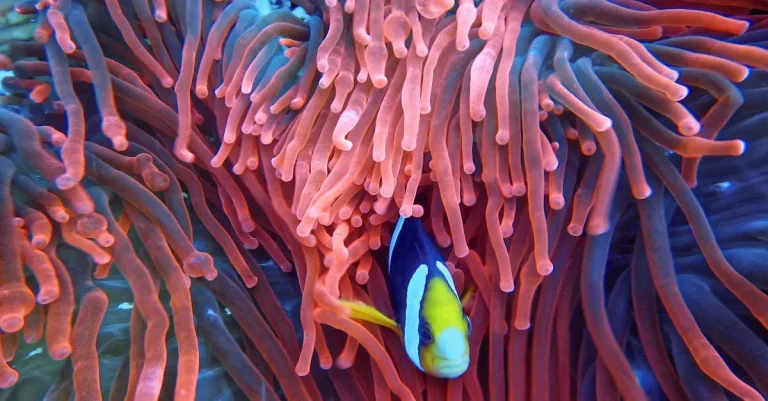Is Psychology A Science Or An Art?
The debate over whether fields like psychology are scientific disciplines or artistic ones driven by human intuition speaks to our conceptions of knowledge itself. If you’re short on time, here’s a quick take: While parts of psychology rely on subjective skill and human insight, the field as a whole is firmly grounded in the scientific method, with rigorous research techniques aimed at obtaining objective knowledge.
In this comprehensive article, we’ll dive deep into the merits and flaws of characterizing psychology as a science versus an art. We’ll analyze the elements of psychology that demonstrate scientific rigor like controlled experiments and statistical analysis.
We’ll also consider the aspects of the field that depend more on human intuition, creativity, and interpretation. By evaluating both sides of the debate, we’ll gain a nuanced perspective on why psychology contains elements of both science and art, while still falling primarily on the side of science.
Defining Science Versus Art
When it comes to the field of psychology, there has been an ongoing debate about whether it should be considered a science or an art. To understand this debate, it is important to delve into the common conceptions and characteristics of both science and art.
Common Conceptions and Characteristics
Science is often associated with systematic observation, experimentation, and the use of empirical evidence to understand and explain phenomena. It is driven by the pursuit of knowledge, objectivity, and the ability to replicate findings.
In the realm of psychology, this means conducting rigorous experiments, collecting data, and analyzing results to draw conclusions about human behavior and mental processes.
Art, on the other hand, is often associated with creativity, expression, and subjective interpretation. It allows for individual perspective and personal experiences to shape the creation and appreciation of artwork.
In psychology, art can be seen as a way to explore and communicate emotions, thoughts, and experiences through various mediums such as painting, music, or writing.
While these definitions may seem distinct, it is important to note that there can be overlap between science and art. For example, both fields require curiosity, critical thinking, and the ability to communicate ideas effectively.
Additionally, psychologists may use artistic methods such as storytelling or role-playing in therapy sessions to help individuals express themselves and explore their inner worlds.
Subjectivity and Objectivity
One key point of contention in the debate is the level of subjectivity and objectivity involved in psychology. Science is often associated with objectivity, where facts and evidence drive the understanding of a phenomenon.
In this view, psychology would be considered a science as it relies on empirical data and follows systematic methods to study human behavior.
However, psychology also acknowledges the subjective nature of human experiences. Emotions, thoughts, and perceptions can vary greatly from person to person, making it challenging to apply purely objective measures.
This acknowledgment of subjectivity leads some to argue that psychology should be considered an art, as it involves interpretation and understanding of individual experiences.
Ultimately, whether psychology is perceived as a science or an art depends on one’s perspective and the specific area of study within psychology. Both approaches have their merits and play important roles in advancing our understanding of human behavior and mental processes.
For more information on this topic, you can visit Psychology Today or American Psychological Association.
Scientific Elements of Psychology
Controlled Experiments
One of the key scientific elements of psychology is the use of controlled experiments. In these experiments, researchers manipulate variables and measure their effects on behavior or mental processes. This allows them to establish cause-and-effect relationships and draw conclusions about how different factors influence human behavior.
For example, in a study on the effects of caffeine on attention, researchers may randomly assign participants to either a group that receives caffeine or a group that receives a placebo. By carefully controlling and manipulating the independent variable (caffeine), researchers can determine whether it has a significant impact on the dependent variable (attention).
Statistical Analysis
Another important scientific element of psychology is the use of statistical analysis. After collecting data, researchers use statistical techniques to analyze and interpret the results. This allows them to determine the likelihood that their findings are due to chance and make inferences about the population they are studying.
Statistical analysis helps psychologists identify patterns, trends, and relationships within the data. For example, researchers may use a t-test to compare the mean scores of two groups or conduct a correlation analysis to examine the relationship between two variables, such as stress and depression.
Biological and Neurological Foundations
Psychology also incorporates a scientific understanding of the biological and neurological foundations of behavior. This includes studying the structure and function of the brain, as well as how hormones, neurotransmitters, and genetics influence behavior.
Psychologists who specialize in biological psychology use techniques such as brain imaging (e.g., fMRI) to examine the neural correlates of different mental processes and behaviors. By understanding the biological underpinnings of behavior, psychologists can provide insights into disorders such as schizophrenia, depression, and addiction.
It is important to note that while psychology incorporates scientific elements, it is not solely a science. Psychology also encompasses aspects of the humanities and social sciences, such as studying individual experiences, cultural influences, and societal factors that shape behavior and mental processes.
The integration of scientific methods with a holistic understanding of human behavior and cognition allows psychology to be both a science and an art.
Aspects of Psychology Requiring Artistic Skill
While psychology is often considered a science, there are certain aspects of the field that require artistic skill and creativity. These aspects involve the application of subjective experiences, the development of theories, and the practice of therapy and clinical work.
Therapy and Clinical Practice
One area of psychology that requires artistic skill is in therapy and clinical practice. Therapists and counselors often need to tap into their artistic abilities to create a safe and nurturing environment for their clients.
They may use various art forms such as painting, drawing, or music to help their clients express themselves when words are difficult to find. These creative techniques can be particularly helpful in working with individuals who have experienced trauma or struggle with verbal communication.
Interpreting Subjective Experiences
Another aspect of psychology where artistic skill comes into play is in interpreting subjective experiences. While psychology aims to understand human behavior through objective methods, there are times when subjective experiences need to be explored and understood.
This requires psychologists to go beyond the numbers and statistics and delve into the rich and complex world of human emotions, thoughts, and perceptions. Artists often have a unique ability to tap into these subjective experiences and bring them to life, allowing psychologists to gain a deeper understanding of their clients.
Creativity in Developing Theories
Psychology is also a field that requires creativity in developing theories. While scientific research and evidence-based practices form the foundation of psychological theories, there is still room for innovative and creative thinking.
Psychologists need to think outside the box and come up with new hypotheses and explanations for human behavior. This creative aspect of psychology allows for the exploration of new ideas and theories that can push the field forward.
Philosophical Debates on the Nature of Science
When discussing the nature of psychology, one question that often arises is whether psychology is considered a science or an art. This debate has been the subject of much philosophical discussion and has led to various theories and perspectives.
Social Constructivism and the Sociology of Science
One perspective that has influenced the debate is social constructivism, which suggests that scientific knowledge is not objective but rather socially constructed. According to this view, science is influenced by social, cultural, and historical factors.
This perspective argues that psychology, as a scientific discipline, is shaped by societal beliefs, values, and biases. It emphasizes the importance of considering the social context in which scientific knowledge is produced and interpreted.
Additionally, the sociology of science examines how scientific knowledge is created and validated within social communities. It explores the role of scientific institutions, peer review processes, and the influence of funding sources on the development of scientific knowledge.
This perspective highlights the social aspects of science and suggests that psychology, as a scientific discipline, is not immune to these sociological influences.
The Theory-Ladenness of Observation
Another perspective that contributes to the debate is the theory-ladenness of observation. This concept suggests that our observations are influenced by our pre-existing theories and beliefs. In other words, what we see and interpret is not purely objective but rather influenced by our own subjective understanding.
This perspective challenges the notion that science is purely objective and suggests that psychology, as a scientific discipline, is also subject to this inherent subjectivity.
For example, when psychologists observe and interpret behavior, they do so through the lens of their theoretical frameworks, which can shape their understanding and interpretation of the data. This recognition of the theory-ladenness of observation raises questions about the objectivity of psychological research and its classification as a science or an art.
Psychology’s Place in a Broader View of Science
When considering the debate on whether psychology is a science or an art, it is important to view psychology within the broader context of science. While some argue that psychology may have artistic elements, it is widely recognized as a scientific discipline.
Psychology employs scientific methods, including experimentation, observation, and statistical analysis, to uncover and understand human behavior and mental processes.
Psychology also contributes to the development of scientific knowledge through empirical research and the application of scientific principles. It follows rigorous methodologies and adheres to ethical standards, similar to other scientific disciplines.
Furthermore, psychology has made significant contributions to other branches of science, such as neuroscience and cognitive science.
Bridging the Science-Art Divide with Pragmatism
When it comes to psychology, the debate between whether it is a science or an art has been a long-standing one. However, a pragmatic approach can help bridge this divide by recognizing the value of both objective and subjective knowledge.
Valuing Both Objective and Subjective Knowledge
Psychology as a science relies on objective data, experimentation, and statistical analysis to understand human behavior and mental processes. Through rigorous research methods, psychologists aim to uncover universal principles that can be applied to a wide range of individuals.
This scientific approach provides valuable insights into the workings of the human mind and allows for evidence-based interventions.
On the other hand, psychology as an art recognizes the importance of subjective experiences, emotions, and individual perspectives. It acknowledges that each person is unique and that understanding their inner world requires a more personalized and empathetic approach.
This artistic aspect of psychology values the therapeutic relationship, creativity, and the ability to interpret and connect with individuals on a deep level.
Complementary Ways of Understanding Humans
By embracing both the scientific and artistic aspects of psychology, we gain a more comprehensive understanding of human behavior and mental processes. Science helps us identify patterns, establish cause-and-effect relationships, and develop evidence-based treatments.
Art, on the other hand, allows us to appreciate the complexity and intricacies of human experiences, emotions, and narratives.
Both science and art have their own strengths and limitations. While science provides us with objective data and generalizable findings, art allows for a more nuanced and contextual understanding of individuals.
By combining these approaches, psychologists can better tailor their interventions to meet the unique needs of each individual while still relying on evidence-based practices.
The Importance of Practical Applications
Ultimately, the goal of psychology is not only to understand human behavior and mental processes but also to improve the lives of individuals and society as a whole. The pragmatic approach acknowledges the importance of practical applications and the need to bridge the gap between theory and practice.
By incorporating scientific research and artistic insights into practical applications, psychologists can develop interventions that are both effective and meaningful. This integration allows for a holistic approach that considers the individual’s biological, psychological, and social factors, leading to better outcomes and greater overall well-being.
It is important to note that the debate between psychology as a science or an art is not a binary choice. Instead, it is a continuum where different approaches can coexist and complement each other. By embracing pragmatism, psychologists can harness the power of both science and art to enhance their understanding of human behavior and provide more effective interventions.
Conclusion
While parts of psychology rely heavily on clinical skill and human interpretation, the field as a whole is firmly grounded in scientific principles and methodologies aimed at generating objective knowledge.
However, even the hardest of sciences involve elements of subjective creativity and intuition in developing theories. Rather than strictly dichotomizing disciplines as either science or art, we can recognize that both rigorous research and human insight play important and complementary roles in building a comprehensive understanding of complex topics like human psychology.







